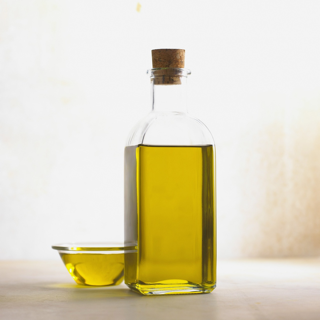Eliminate seed oils and you will reduce inflammation and improve your overall health. Seed oils are cheap, ubiquitous and removing them from your diet can lead to weight loss and overall improved cellular health. If you grew up in the 80s and 90s, fat-free was the rage. People believed that fat was bad and processed wheats and sugar-filled products were a better health choice. It has been difficult for people to abandon this mindset and believe that fat is actually healthy. Our brain is 60% fat, fat also covers 80% of our heart. Fat also makes up our cell membranes. When we consume healthy fats, we are nourishing critical body parts and systems.
Seed Oil History
Seed oils have a gross history. In the 1900s, cottonseed oil was consigned to the status of “toxic waste” until Procter & Gamble (P&G) made it into soap. These seed oils could be altered via a process called “hydrogenation” to convert from liquid into solid cooking fat that resembled lard. An oil formerly classified as “toxic waste” became an integral part of the American diet when Crisco was introduced to the market in the early 1900s. Then in the 1940s, these harmful oils became known as healthy when the American Heart Association (AHA) received a generous donation from P&G. After this donation, the AHA was quick to endorse these “vegetable” oils as healthy alternative to ancestral fats like lard, tallow and butter. This endorsement shifted public opinion and propelled these oils to be widely accepted. Margarine and low fat products were pushed as healthy options to consumers.
Seed oil use expanded over time to include soybean, corn, safflower, sunflower, rapeseed/canola oils and are found in most processed foods because they are cheap. Because they’re so inexpensive to produce, food manufacturers are quick to use seed oils in their products. When you check ingredients of your pantry items for seed oils, you will be alarmed at how many products contain these gnarly oils, including Oat Milk!
Why seed oils are bad
- Seed oils are highly processed and chemically treated, very unstable resulting in oxidation and inflammation. To watch the process, here is a YouTube video showing how Canola/rapeseed oil is made.
- Seeds are treated with high heat to extract the oil making the oil unstable.
- A petroleum-based solvent, Hexane, is also used to help extract the oil.
- Seeds are genetically modified, grown as mono-crops, and sprayed with pesticides (including glyphosate), herbicides and fungicides.
- Companies add fragrance to hide the rancid smell. The deodorization process produces trans fats, which are well known to be quite harmful to human health.
- Additional chemicals are added to improve the color of the oils.
- These oils are high in omega 6 fatty acids. Though we need this type of fat in our diet, there is an optimal balance required between Omega 3, omega 6 and omega 9 fatty acids. Because seed oils are in most all processed foods, this accumulation of too much omega 6 oils, leads to an imbalance increasing inflammation.
- They are unstable, causing oxidation and releasing free radicals (toxins) into the body.
Why fat is good, however
Though seed oils are bad, a high percentage of diverse, good quality fats are required for optimal health. Below are some benefits to having fat in your diet:
- Fat cushions and protects our organs
- It’s the body’s preferred form of fuel due to its long, slow burn
- It helps keep us full
- Fat makes food taste good
- It aids in absorption if that soluble vitamins, A,D,E, & K
- Regulates energy by slowing absorption of food
- Fat is a building block for cell membranes in hormones
Best sources of fats
The key with choosing healthy oils and fats, look for the least refined, least processed, ancestral forms. Focusing on fats that are stable and easy for our bodies to digest, we can reduce inflammation.
- Plant based fats: Nuts & Seeds, Avocados & Olives
- Protein sources: fish, eggs & grass-fed beef
- Cold pressed Extra Virgin Olive oil – Look for cold pressed and Italy, California or Spain origin, California Olive Ranch, and Costco are good options. Be aware of plain Olive Oil. These are blended with unstable seed oils that are not offering the polyphenols and ideal fatty acids that Cold pressed extra virgin olive oil privudes.
- Avocado oil – if you are looking for an oil for higher heat and a milder flavor, this is a great option. Chosen Foods and Primal Kitchen and Nutiva are quality brands.
- Coconut oil – unrefined organic, Trader Joe’s and Dr. Bronner
- Grass-fed butter – Grass fed butter is a better choice than conventional butter. Grass fed butter (higher in vitamin K, omega 3 fatty acids, vitamin A, beta carotene, Conjugated linoleic acid.) Kerry Gold and Vital Farms are great choices.
- Ghee – Ghee is clarified butter in which milk solids are removed, but the buttery flavor remains. Can be used for high heat cooking. Organic Valley and 4th & Heart are good options.
- Animal fats like tallow, lard, duck and pork fat – Epic and Fatworks have many choices.
Empower yourself to be aware of the oils you and your family are consuming and upgrade to better quality fats. Thus, you will reduce inflammation as well as many other health benefits.


